

 A Mediterranean diet, the New England Journal of Medicine reported Monday, can lengthen one’s lifespan. So inhabitants of southern Europe can look forward to long lives — of anxiety and privation.
A Mediterranean diet, the New England Journal of Medicine reported Monday, can lengthen one’s lifespan. So inhabitants of southern Europe can look forward to long lives — of anxiety and privation.
Already mired in a depression comparable to that of the 1930s, Spain, Greece and Portugal are going to see things grow worse this year, according to an annual economic forecast released by the European Commission on Friday. Unemployment rates in both Spain and Greece — where a quarter of the populations are unemployed and the share of jobless young people exceeds 50 percent — will rise to 27 percent.
At least the leaders in power in 1930 had an excuse when the economy began to collapse. Then, there was genuine bewilderment among economists and governmental chieftains across the political spectrum about how to induce a recovery. From British Laborite Ramsay MacDonald to the German centrist Heinrich Bruning to American conservative Herbert Hoover,
» Read more about: Austerity: Will We Follow Europe’s Lead? »
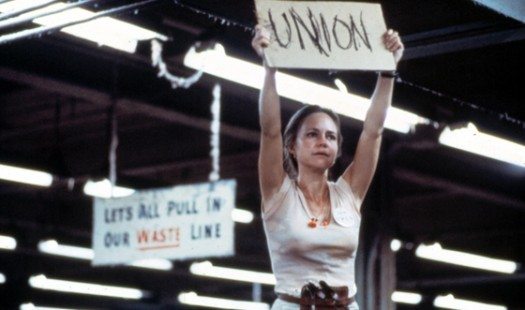
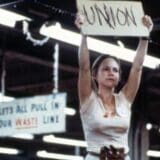
 For all the talk of saving and rebuilding the middle class, no public official from the President on down has mentioned the U-word. The U-word? “Unions.” From the 1930s through the ’70s, unions turned working-class jobs into middle-class jobs. Hourly wage earners organized themselves into unions that could fight for livable wages, health and retirement benefits, safety rules, job protection and on-the-job respect. These became such national standards that even in the historically right-to-work states in the Deep South, many of these principles prevailed.
For all the talk of saving and rebuilding the middle class, no public official from the President on down has mentioned the U-word. The U-word? “Unions.” From the 1930s through the ’70s, unions turned working-class jobs into middle-class jobs. Hourly wage earners organized themselves into unions that could fight for livable wages, health and retirement benefits, safety rules, job protection and on-the-job respect. These became such national standards that even in the historically right-to-work states in the Deep South, many of these principles prevailed.
But for three decades those work standards have been under attack, wages have dropped — with benefits cut or stolen. Why is this happening? Because union membership declined as free trade agreements shipped those jobs off-shore, as business mergers stripped workers of health care, and as strategic corporate bankruptcies took away their pension funds. Workers have been asked to “give back” in order to keep their jobs from vanishing,


For years, Los Angeles has been ground zero in an intense debate about how to improve our nation’s education system. What’s less known is who is shaping that debate. Many of the biggest contributors to the so-called “school choice” movement — code words for privatizing our public education system — are billionaires who don’t live in Southern California, but have gained significant influence in local school politics. New York Mayor Michael Bloomberg’s recent contribution of $1 million to a political action committee created to influence next week’s LAUSD school board elections is only the most recent example of the billionaire blitzkrieg.
For more than a decade, however, one of the biggest of the billionaire interlopers has been the Walton family, heirs to the Walmart fortune, who have poured millions into a privatization-oriented, ideological campaign to make L.A. a laboratory for their ideas about treating schools like for-profit businesses,
» Read more about: Walmart Heirs Spend Millions to Privatize L.A. Schools »


Don’t miss this inspiring theatrical adaptation of The Grapes of Wrath, the rabble-rousing, pro-union Depression-era classic that, alas, remains as timely now as the day John Steinbeck wrote it in 1939. With imaginative mise-en-scene, sets, props and an integrated use of live music, A Noise Within’s production brings the Homeric, heroic odyssey of the Joad family from Oklahoma to California vividly, memorably alive.
Forced off of what had been the family farm for generations by a calamity worse than the Dustbowl — greedy bankers — the displaced Joads join the “Okie” trek to California in their decrepit truck (which is assembled onstage like a jalopy jigsaw puzzle that even assembly line maestro Henry Ford would marvel at). The company creatively expresses the Joads’ long march as they go westward ho! on the thrust stage of A Noise Within’s beautiful new space. But once they reach California’s land of milk and honey,
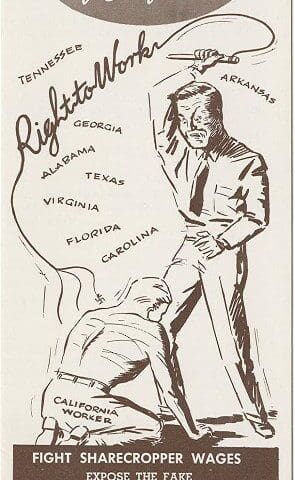
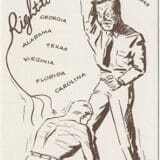
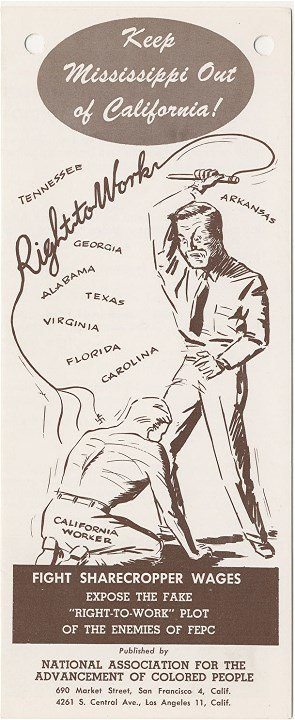 August 28 of this year marks the 50th anniversary of the famous March on Washington. For many people, the march was simply the site where Dr. Martin Luther King delivered his “I Have a Dream” speech. However, the full name of the march was the March on Washington for Jobs and Freedom, and it marked a high point of the modern Civil Rights Movement, after black communities and their supporters throughout the country boycotted buses, sat-in at lunch counters, rode in Freedom Rides, and marched in the streets. These massive protests were aimed at destroying, once and for all, the era of legal segregation — which had been a blot on this country since the end of slavery.
August 28 of this year marks the 50th anniversary of the famous March on Washington. For many people, the march was simply the site where Dr. Martin Luther King delivered his “I Have a Dream” speech. However, the full name of the march was the March on Washington for Jobs and Freedom, and it marked a high point of the modern Civil Rights Movement, after black communities and their supporters throughout the country boycotted buses, sat-in at lunch counters, rode in Freedom Rides, and marched in the streets. These massive protests were aimed at destroying, once and for all, the era of legal segregation — which had been a blot on this country since the end of slavery.
But organizers knew that the end of segregation without good jobs was no freedom at all. So, four of the march’s ten demands focused on employment issues. (See the ten demands and other items in the march’s “Organizing Manual No.


 The headlines – “Many States Say ‘No’ to Health Insurance Exchanges,” to take one example – make it seem like bad news. But it’s not. It is good news that half the states are refusing to have anything to do with the new health insurance marketplaces being set up under the Affordable Care Act.
The headlines – “Many States Say ‘No’ to Health Insurance Exchanges,” to take one example – make it seem like bad news. But it’s not. It is good news that half the states are refusing to have anything to do with the new health insurance marketplaces being set up under the Affordable Care Act.
One of the biggest differences between the good version of ObamaCare passed by the House and the mediocre Senate version that became law was the question of whether the federal government or states would run the new health insurance marketplaces (called “exchanges” in the law). But resistance by Republican governors is leading to implementation of the law in a way that is much closer to the vision in the House bill.
The new health marketplaces are the centerpiece of ObamaCare, the mechanisms through which people who don’t get health coverage at work but make too much for Medicaid will be able to purchase subsidized health coverage,
» Read more about: Just Say No to Health Care Marketplaces »


(This post first appeared February 20 on Truthout and is republished with permission.)
Republicans were quick to criticize President Obama last week after he proposed raising the federal minimum wage from $7.25 to $9 during his State of the Union address, but now a poll shows that a majority of voters agree with the president that the current minimum wage is not a living wage and a hike is in order.
A Rasmussen Reports national survey released on Tuesday found that only 15 percent of voters believe the current minimum wage provides workers with enough money to live on, while 72 percent said $7.25 an hour is not a living wage.
Voters remain more closely divided on actually raising the minimum wage, with 54 percent in favor of the raising the minimum wage to $9 an hour and 36 percent opposed to the proposal.
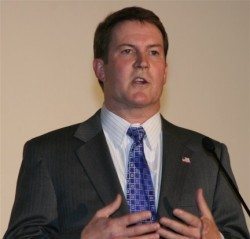

 Yesterday we published Part One of a conversation with mayoral hopeful Kevin James, continuing our interviews with Los Angeles’ front-running candidates. James is an entertainment lawyer and talk-show host, who has previously served as a U.S. prosecutor and AIDS Project Los Angeles co-chairman. (The series’ interviews, which have been edited for clarity, include Eric Garcetti, Parts One and Two, and Wendy Greuel, Parts One and Two.)
Yesterday we published Part One of a conversation with mayoral hopeful Kevin James, continuing our interviews with Los Angeles’ front-running candidates. James is an entertainment lawyer and talk-show host, who has previously served as a U.S. prosecutor and AIDS Project Los Angeles co-chairman. (The series’ interviews, which have been edited for clarity, include Eric Garcetti, Parts One and Two, and Wendy Greuel, Parts One and Two.)
Frying Pan News: Your campaign’s main selling point is that you are not a City Hall insider, that you have no institutional connection to the city’s budget problems. Other than this, why should Angelenos vote for you?
Kevin James: Neighborhoods across our city believe that this City Council has shut them out, that they don’t have a voice.
» Read more about: Kevin James: Restore City Services and Voter Involvement »

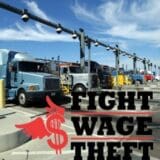
 It’s almost payday. Imagine if you went to cash your paycheck only to find that your employer had instead billed you for the opportunity to work for them.
It’s almost payday. Imagine if you went to cash your paycheck only to find that your employer had instead billed you for the opportunity to work for them.
For drivers at Seacon Logix, paying to work was only the beginning of the abuses they faced from their employer, a midsized port trucking company based in Carson.
A group of nine Seacon Logix drivers has persisted for almost two years in seeking to reclaim their wages even as the company has reached a new low in an already notoriously low-road industry.
Seacon Logix didn’t just evade the law by claiming that its employees were “independent contractors,” allowing it to avoid basic responsibilities, like payroll, income taxes and workers compensation insurance.
It didn’t just pass on its operating costs to drivers and force them to pay for vehicle leases, registration and insurance payments by illegally deducting them straight out of drivers’
» Read more about: How Low Can a Port Trucking Company Go? »
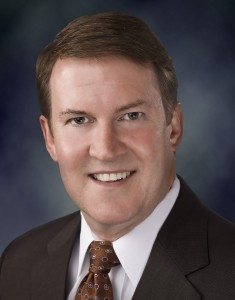

We continue our series of interviews with Los Angeles’ front-running mayoral candidates, with the first part of a talk with Kevin James, an entertainment lawyer and talk-show host, who has previously served as a U.S. prosecutor and AIDS Project Los Angeles co-chairman. (The interviews, which have been edited for clarity, include Eric Garcetti, Parts One and Two, and Wendy Greuel, Parts One and Two.)
Frying Pan News: What do you believe is the role of government in addressing the inequities of the free market system?
Kevin James: A mayor should not shy away from addressing inequality. I was [a] chairman for many years of AIDS Project Los Angeles and part of the work we did was to provide a better life for people who were struggling in theirs —
» Read more about: Kevin James on Bringing Businesses Back to Los Angeles »